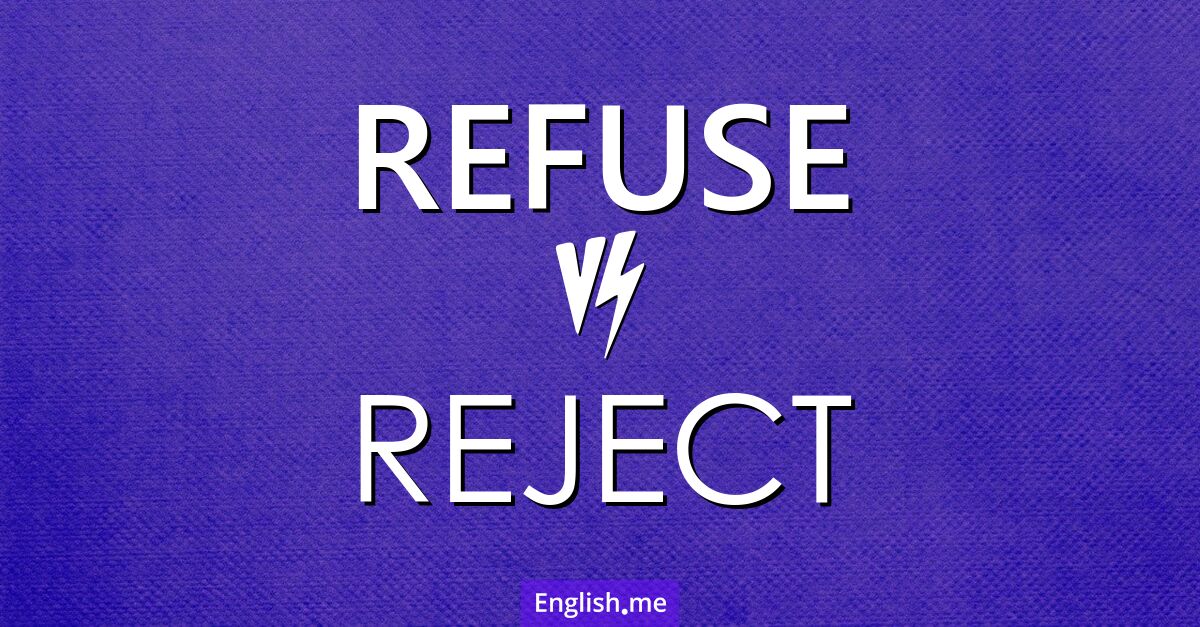"Refuse" vs. "reject": exploring the nuances of denial
Reviewed and edited by  Anwar Kareem 09/10/2024, 23:36
Anwar Kareem 09/10/2024, 23:36
English.me team member

 What is similar?
What is similar?
Both "refuse" and "reject" imply not accepting or not agreeing to something that is offered, proposed, or intended. They are both used to indicate denial or dismissal of something.
 What is different?
What is different?
The word "refuse" can imply a personal decision or denial, often derived from a sense of unwillingness. "Reject" can imply a more formal or forceful dismissal, and can also suggest a decision based on standards, criteria, or judgment. Additionally, "reject" can be used as a noun, while "refuse" as a noun refers to waste or garbage.
 Which one is more common?
Which one is more common?

 Examples of usage
Examples of usage
Refuse- She refused to eat the vegetables.
- He refused the job offer because it was too far from home.
- They refused to accept the terms of the agreement.
- The editor rejected the manuscript for publication.
- He rejected their proposal after careful consideration.
- The company rejected the batch of materials due to quality issues.

 English
English español
español française
française italiano
italiano deutsche
deutsche 日本語
日本語 polski
polski česky
česky svenska
svenska Türkçe
Türkçe Nederlands
Nederlands